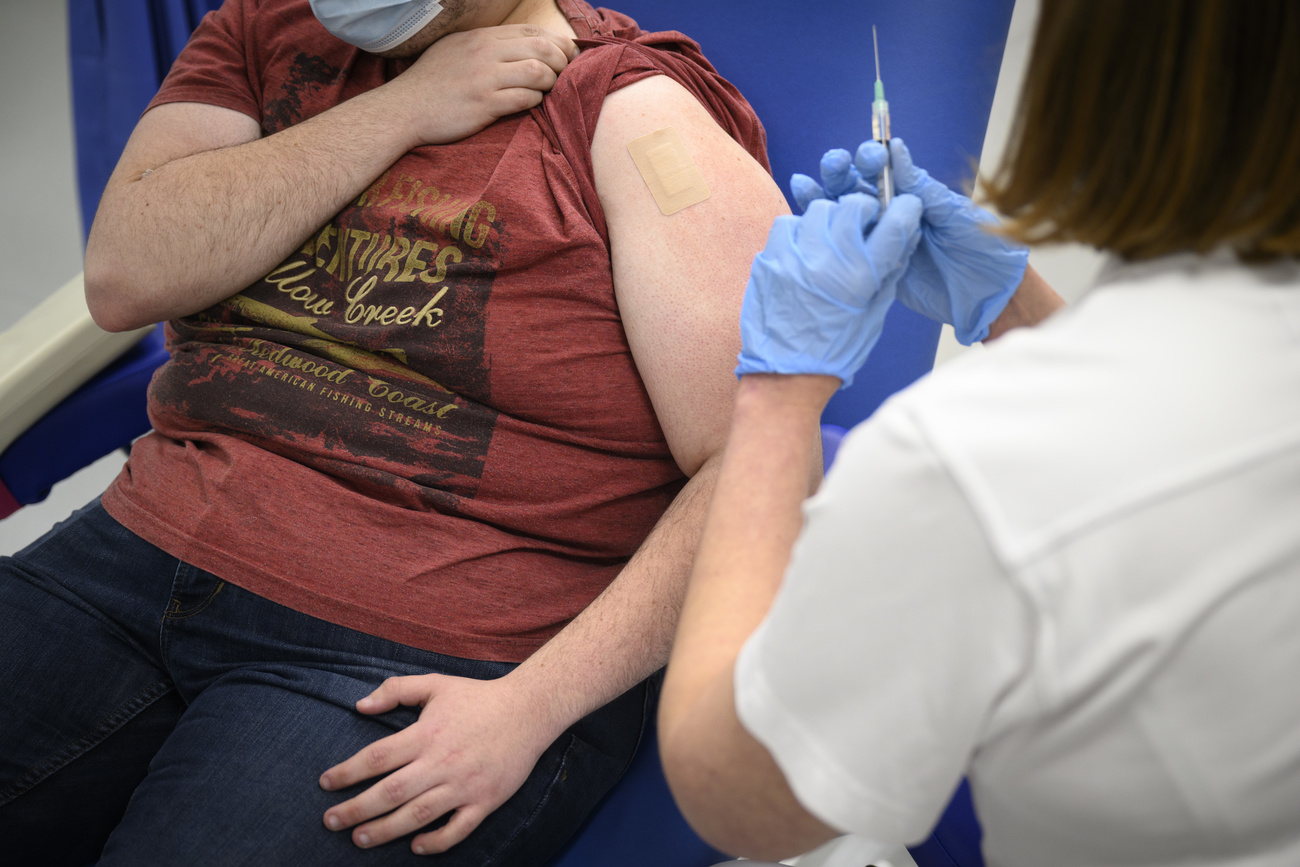Rising Swiss obesity levels: can new fat loss drugs like Ozempic and Wegovy help?

The proportion of obese people in Switzerland has more than doubled over the past three decades. Can the latest drugs stem the tide?
About 12% of the Swiss population is obese compared to just 5% in 1992, according to the Swiss Health Survey of 2022. Obesity affects the elderly disproportionately with 43% of obesity cases concentrated in the age cohorts 55–64 and 65–74. The foreign-born population is slightly more at risk, as are those who reside in rural parts of Switzerland.
The rise in obesity has been accompanied by a rise in interest in anti-obesity drugs. The main weight loss medication used in Switzerland are Orlistat and Liraglutide. The former prevents the body from absorbing fats in the food and the latter makes the stomach empty less quickly. Both need to be prescribed by a doctor.
New wonder drugs for weight loss
However, a new generation of drugs has sparked new interest in the fight against obesity. Ozempic, an injectable drug first authorised in the US in 2017 for lowering blood sugar in people with type 2 diabetes, is one of them. Promotion of the drug by influencers on social media as a “magic pill” for rapid weight loss led to an explosion in worldwide demand.
In Switzerland, the drug developed by Danish company Novo Nordisk is authorised only for adult-onset diabetes and can be used for losing weight only if prescribed by a doctor (what is known as off-label use). Another drug manufactured by Novo Nordisk known as Wegovy is targeted specifically for weight loss and was approved by the Swiss medicines regulator Swissmedic in 2022. Like Ozempic, Wegovy also has the active ingredient semaglutide but in a higher dose. This chemical lowers blood sugar levels and mimics an appetite suppressing hormone called GLP-1.
“Semiglutides like Wegovy are a big step up from what was available and are a safe option. Obesity is a chronic disease and this offers a chronic treatment,” Bernd Schultes, vice-president of the Swiss Society for the Study of Morbid Obesity (SMOB), told SWI swissinfo.ch.
Due to high global demand, Wegovy only became commercially available in Switzerland last November, a year and a half after Swissmedic approval. To be eligible for Wegovy, the patient must have a body mass index (BMI) of over 30 or a BMI of 27 to 30 with at least one weight-related concurrent disease.

More
Four ways your kids are being nudged online to eat junk food
Wegovy has been covered by the Swiss health insurance since March, but coverage is only for a maximum of three years with the condition that the patient has to achieve a weight loss reduction of 12% in the first ten months. Schultes believes that trying to cut healthcare costs by imposing such restrictions on fat-loss drugs is a false economy.
“We can prevent a cascade of health complications like heart attacks, strokes, hip and knee replacements by intervening earlier with pharmacotherapy,” he says.
Swiss investment into the weight loss drug market
It is not all about costs though. There is also money to be made in this rapidly growing sector. Swiss pharma heavyweight Roche entered the weight loss drug market with its acquisition of Carmot Therapeutics in December for almost $3 billion (CHF2.7 billion). This month, the Basel-based firm announced that its experimental drug CT-388 helped patients lose almost 19% of their weight after 24 weeks in the phase one trial.
“The results are highly encouraging for further development of CT-388 for both obesity and type 2 diabetes and underscore its potential to become a best-in-class therapy with durable weight loss and glucose control,” Roche’s Chief Medical Officer Levi Garraway said in a press releaseExternal link on May 16.

More
Subscribe to our weekly top stories
It is not just pharma investing in the obesity treatment boom. Swiss food giant Nestlé, blamed by some for promoting the consumption of unhealthy processed food, has spotted an opportunity for new products. Last week, the company announced it would start selling portion-controlled frozen meals labelled Vital Pursuit for those on these weight-loss drugs.
“As the use of medications to support weight loss continues to rise, we see an opportunity to serve those consumers. Vital Pursuit provides accessible, great-tasting food options that support the needs of consumers in this emerging category,” said Steve Presley, CEO Nestlé North America in a press releaseExternal link on May 21.
Vital Pursuit meals will be available to US customers in the fourth quarter of the year.
Research into custom cures for obesity
The causes of obesity are complex and specific therapies and medicines may work better for some people. For example, researchers have found that the hormone cortisol plays an important role in regulating how we metabolise carbohydrates, fat and protein. The stress hormone is produced in the adrenal glands, raises blood sugar which is then converted into fat, especially in the abdominal area. Therefore in some people, using medicine to lower cortisol levels could help them lose weight.
“In most people, the fat cells bathe in a sea of cortisol, despite the fact that the levels detected in the blood aren’t elevated,” states Felix Beuschlein, Head of Clinic at the Department of Endocrinology, Diabetology and Clinical Nutrition at University Hospital Zurich on the project’s website. “Were we to find out that some patients respond well to medication that changes cortisol metabolism, this would be a major step in the direction of using precision medicine to treat obese and overweight patients.”
Beuschlein oversees the LOOBesity project External linkthat was launched in 2023 to develop a personalised profile to determine future targeted treatments. Over 300 obese and overweight people have signed up to the project to provide regular updates about the state of their health, have a biopsy taken of their fat tissue, and undergo a magnetic resonance imaging (MRI) scan. This large dataset will then be analysed using artificial intelligence.
“We want to use the cohort study to find out how and for whom specific therapies and medicines work,” says Beuschlein.
The LOOBesity project also has another objective: to shed light on why most people regain weight once they stop taking weight loss drugs such as Wegovy.
Edited by Reto Gysi von Wartburg/ts
Correction: The proportion of obese people in Switzerland has more than doubled over the past three decades not two as stated in the original version.

More
How are you? What is on your mind? Take part in our big survey

In compliance with the JTI standards
More: SWI swissinfo.ch certified by the Journalism Trust Initiative









You can find an overview of ongoing debates with our journalists here . Please join us!
If you want to start a conversation about a topic raised in this article or want to report factual errors, email us at english@swissinfo.ch.